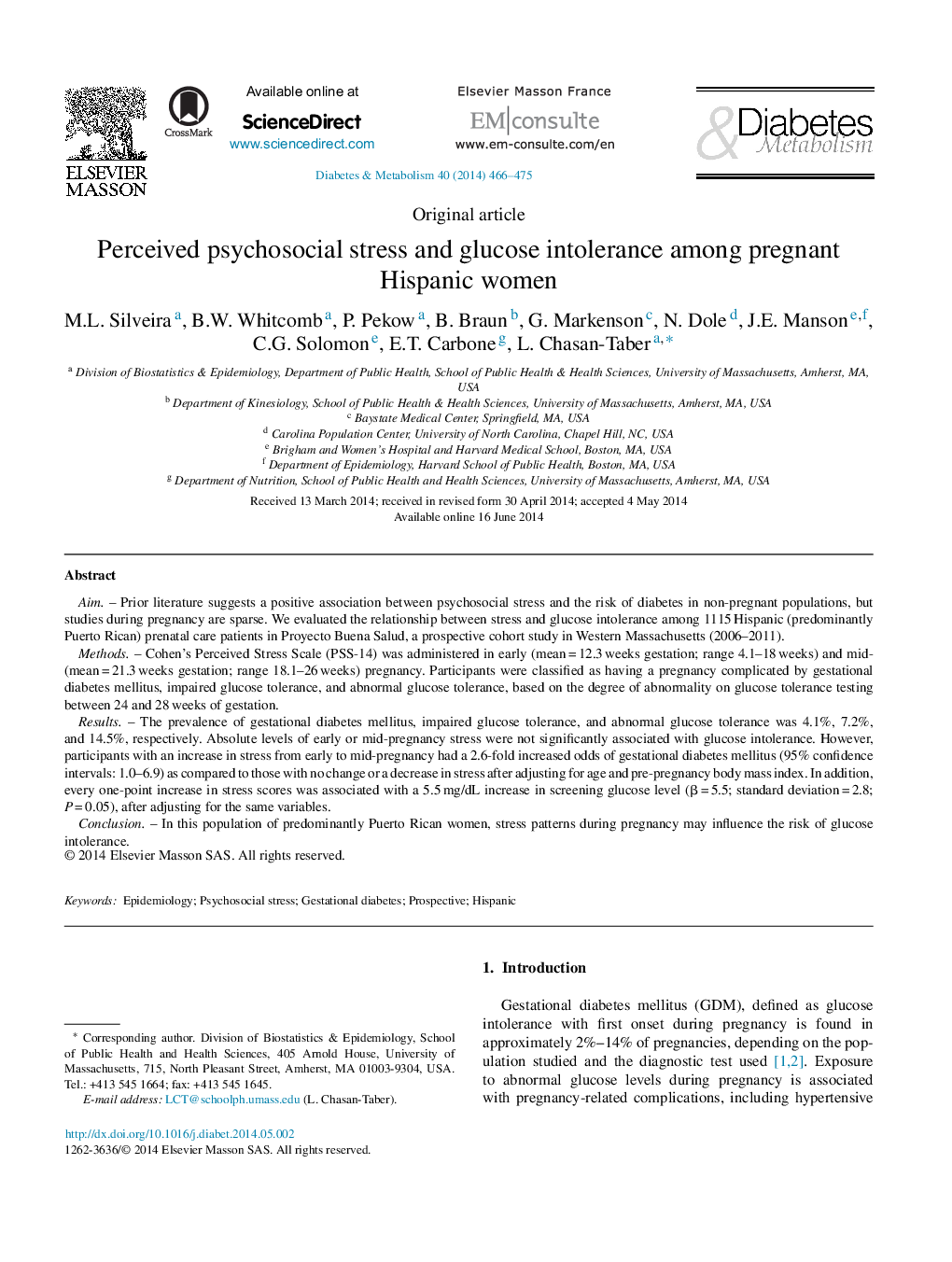| Article ID | Journal | Published Year | Pages | File Type |
|---|---|---|---|---|
| 6087908 | Diabetes & Metabolism | 2014 | 10 Pages |
AimPrior literature suggests a positive association between psychosocial stress and the risk of diabetes in non-pregnant populations, but studies during pregnancy are sparse. We evaluated the relationship between stress and glucose intolerance among 1115 Hispanic (predominantly Puerto Rican) prenatal care patients in Proyecto Buena Salud, a prospective cohort study in Western Massachusetts (2006-2011).MethodsCohen's Perceived Stress Scale (PSS-14) was administered in early (mean = 12.3 weeks gestation; range 4.1-18 weeks) and mid- (mean = 21.3 weeks gestation; range 18.1-26 weeks) pregnancy. Participants were classified as having a pregnancy complicated by gestational diabetes mellitus, impaired glucose tolerance, and abnormal glucose tolerance, based on the degree of abnormality on glucose tolerance testing between 24 and 28 weeks of gestation.ResultsThe prevalence of gestational diabetes mellitus, impaired glucose tolerance, and abnormal glucose tolerance was 4.1%, 7.2%, and 14.5%, respectively. Absolute levels of early or mid-pregnancy stress were not significantly associated with glucose intolerance. However, participants with an increase in stress from early to mid-pregnancy had a 2.6-fold increased odds of gestational diabetes mellitus (95% confidence intervals: 1.0-6.9) as compared to those with no change or a decrease in stress after adjusting for age and pre-pregnancy body mass index. In addition, every one-point increase in stress scores was associated with a 5.5 mg/dL increase in screening glucose level (β = 5.5; standard deviation = 2.8; P = 0.05), after adjusting for the same variables.ConclusionIn this population of predominantly Puerto Rican women, stress patterns during pregnancy may influence the risk of glucose intolerance.
